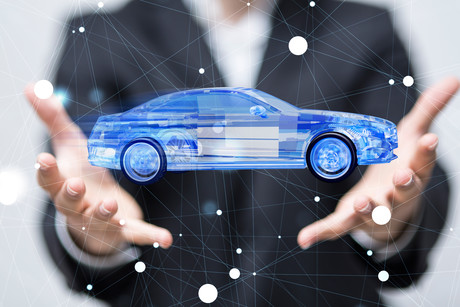IIoT, transport and sustainability

The uptake of Industrial IoT (IIoT) technologies in the transport and logistics sector is largely driven by environmental sustainability, according to research.
A study undertaken on behalf of Inmarsat, provider of mobile satellite connectivity for IIoT deployments, found that almost two-thirds of transport organisations are pursuing IIoT to improve their environmental footprint.
The world’s population is predicted to reach 9.8 billion by 2050, which will cause increasing demand for goods and services. The transport industry will be required to carry these materials across greater distances, which will inevitably have an impact on the environment. Inmarsat stated that while innovations in the transport sector, such as electric vehicles, will help reduce emissions, IIoT will also play an important role in helping transport organisations improve the efficiency of their operations.
The research found that monitoring environmental changes, such as emissions and air quality, is the largest driver of adopting IIoT-based solutions across the industry (61%), followed by improving resource efficiency (54%).
IIoT is already helping many transport organisations reach their sustainability objectives, with 75% of respondents with fully deployed or trial-stage IIoT solutions stating they are achieving environmental sustainability improvements. Early successes have been seen in the implementation of smart asset tracking, real-time route planning, environmental and fuel efficiency monitoring, and telemetry.
Access to reliable and resilient connectivity is essential for IIoT technologies to function, enabling the constant transmission of data to optimise operations. Many transport organisations operate in remote regions or at sea, where terrestrial networks are not available, which is why satellite communication networks emerged as the most common choice to support IIoT solutions.
According to Inmarsat, 78% of transport businesses agreed that satellite connectivity provides crucial support to their IIoT communications networks.
Mike Holdsworth, Director of Transport at Inmarsat Enterprise, said: “The transport and logistics sector is faced with a multitude of challenges, tasked with reducing its impact on the environment and adhering to stricter government regulations, while needing to carry greater quantities of goods and people across the world. Our research shows that organisations are adopting IIoT to help them achieve these goals, and that many are succeeding in this aim.
“However, it is clear that without the right connectivity networks, IIoT deployments won’t succeed in delivering the improvements in sustainability they are capable of. The global nature of transport networks means that organisations need reliable connectivity to gather mission-critical data from every area of their operations and analyse it in real time, though patchy terrestrial coverage makes this challenging. With global and reliable coverage, only satellite communications offers the levels of connectivity organisations need to make IIoT a success.”
Many organisations are also not using the data gathered by IIoT solutions, with the research finding 60% of businesses either identified as starters or laggards. 38% stated there is a lag between data being collected and becoming available to them, which hinders their ability to make real-time decisions, and only 2% of transport businesses allow anyone within their organisation to view data.
Despite these failures in strategy, transport businesses as a whole recognise the potential value of IIoT and data in helping to improve sustainability.
The transport sector was also found to be ahead of the other industries surveyed (mining, energy and agriculture) in its efforts to deploy IIoT solutions, with over half of respondents categorised as leaders or progressives in their readiness for IIoT. According to Inmarsat, this shows the industry is “well on its way to creating a connected, data-rich global supply chain and wider transport network”.
The findings were based on responses from 125 senior IIoT decision-makers from a range of global transport businesses with over 500 employees, with a particular focus on Mexico, Australia and the UK.
How smart HVAC is creating sustainable buildings
By integrating advanced technology and data-driven strategies, building operators can greatly...
Smelly research could influence HVAC industry
In a dedicated lab space that mimics a tiny house, scientists are investigating the impact of...
Lifestyle community gains a new level of connectivity
GemLife, a developer of over-50s lifestyle communities, was facing challenges with its fixed...




